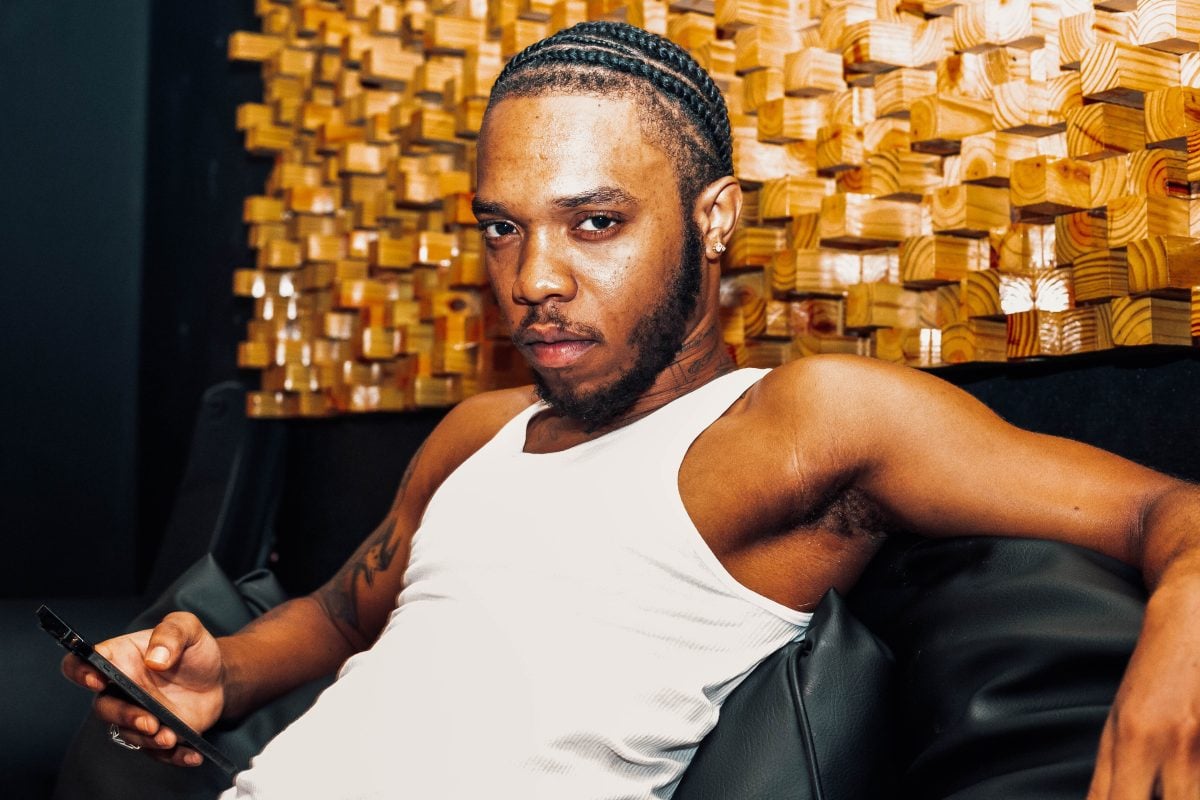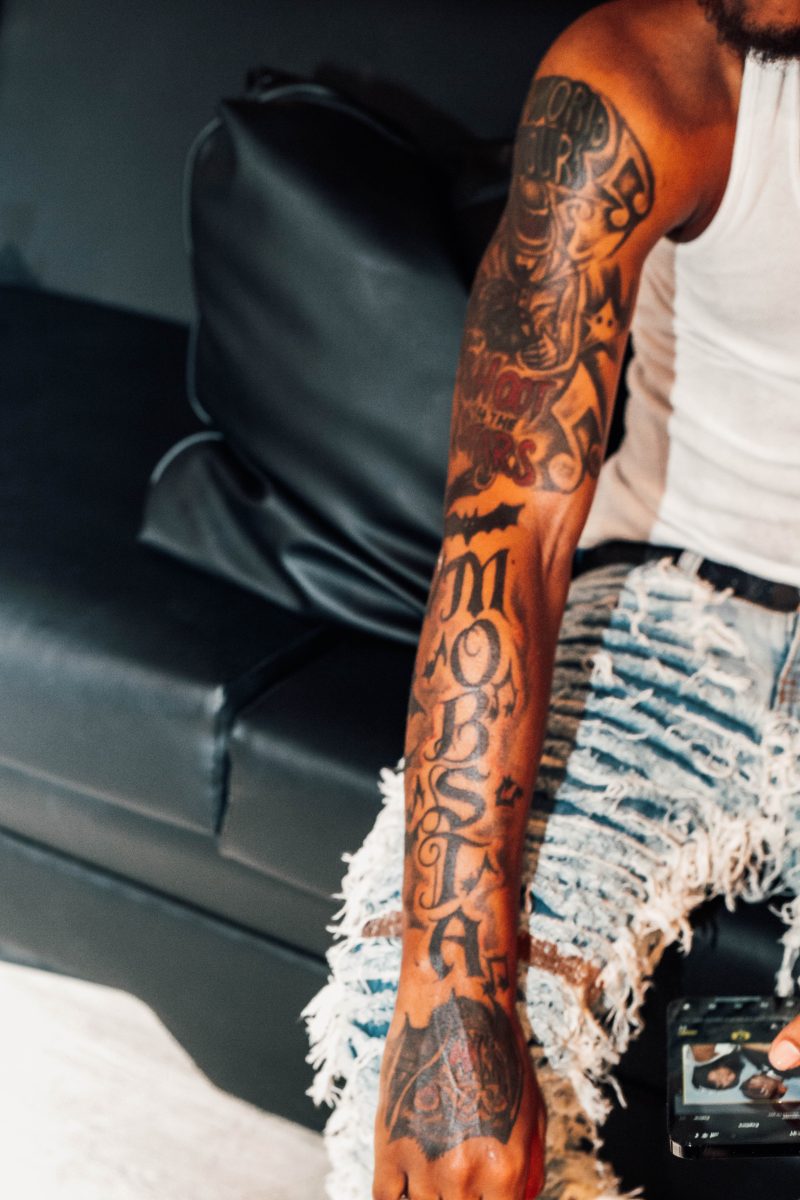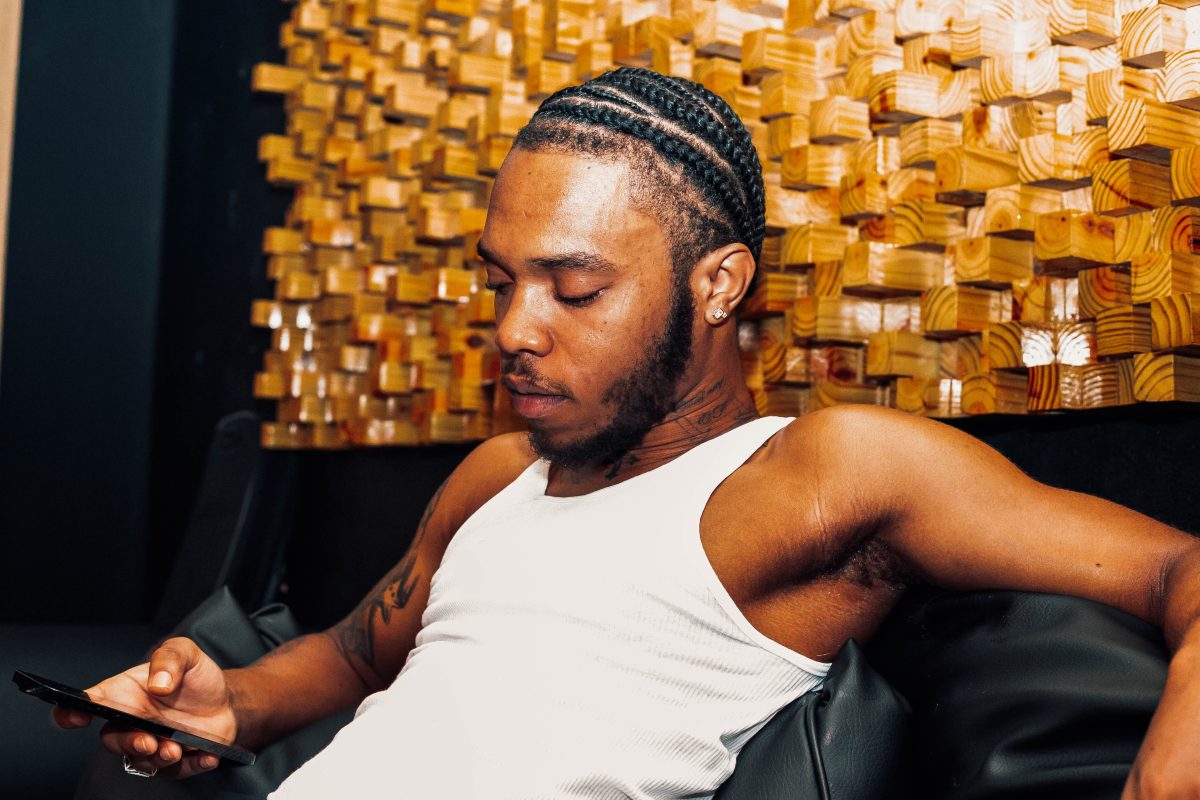Dancehall Artist Bayka Talks Evolution Of His Sound, Early Success And New Mixtape ‘Mob Ties’

Bayka‘s deep, rumbling vocals are the first thing that grabs your attention. Then comes the effortless yet aggressive flow, carrying lyrics that are deceptively simple. His sound is clearly crafted—you can tell it’s been worked on and meticulously honed with each song. He’s constantly upping the ante on his popular hits, solidifying his place as a force to be reckoned with.
In a recent sitdown interview with DancehallMag, Bayka shared some deeper insights from his rise to prominence.
His musical journey began in his school days, culminating in early success with hit songs like Sinna Life and Mobster. Crowd favorites include She Like It and Craves, guaranteed to get the ladies moving. These high-energy songs stand in stark contrast to his deeper, more introspective work, like the 2022 release Survive, hinting at a more complex story behind his current minimal and effortless flow. Statistic marked another milestone in the evolution of Bayka’s sound, showcasing his intentional focus on flow, catchy melodies, and witty lyrics.
“Changes come in life, you can’t stay the same forever. You can’t do the same thing forever, you’ll get the same results. So as life progresses, you progress and keep it fresh for the audience,” Bayka says when questioned about the evolution of his sound. “Even me sometimes, I would get used to a new style or sound that I try, but it’s just to master one and move on to the next. It’s just one of those things we work towards.”
This is a clear separator for Bayka. The main concern of a typical young poppin’ artist is to create another hit joint to keep relevant. Not very many are focused on growing their skills and making their sound better, or better yet, tailoring the sound to suit a niche audience—things the Spanish Town native does very well.


Bayka’s music has taken him to platforms like BBC 1Xtra, Reggae Sumfest 2023, and even a Chris Brown concert in Jamaica. The demand for his music is undeniable, fueled by his drive, creativity, and unwavering dedication to his fans. “A dem mek mi deh yahsuh in front of you, sit down a do this interview. And If me never do this mi nuh know wah else I would be doing right now,” Bayka confesses.
In a country where temptations abound, these alternative avenues are key for the youth. But this kind of catering is something some dancehall critics see as bad for the brand as it often leads to darker songs becoming more popular. Whichever influence comes first, whether the chicken or the egg, the fan or the artist; a singular takeaway is often missed.
When a business creates a brand, its duty is to craft it into a version that the target/intended audience will unequivocally love. This is why brands have high-value roles like chief product officer. Jamaican artists have a notoriously dissonant relationship with the business aspect of the music industry; it is unsustainable. The future of dancehall music is in the hands of artists like Bayka, who understand that the chaotic cacophony of marketing, brand, and business dealings are the cornerstones of a successful endeavor.
“Mi nuh know who inna dem rightful mind or heart will choose to not listen to the people who are the reason for them being where they are. I won’t say they know the best all the time but, they have a right. It matters too.”
The lifespan of a typical dancehall artist starts at around 13/4 if they’re adventurous. That gives them time to have maybe a year or two of pure youthful exploration where they might learn something. However, true learning doesn’t begin until about year three. An artist must learn to arrange their voice on music, hold keys and notes with comfort and expertise, construct lyrics to fit said arrangement, and perform said songs on stage. They are expected to dress well, read well, and socialize well; this must all accumulate record and ticket sales.
Naturally, we accept artists who have checked most boxes, if not all. But still, the road is narrow, the expectations are high, and the fall is steep. It’s unforgiving. Luckily, this newer breed of artists seeks no forgiveness. Not only are their learning curves shorter, but they’re finding success early—like year one, two, or three.


Bayka deals with his early success by pacing himself and keeping his perspective. Much of that hinges on this very keen sense of self-awareness he has displayed since some of his early interviews. Mixed with a sober appreciation for the Jamaican term “Buss,” this self-awareness anchors his wild ambition to a steady course.
“Still nuh buss!” he says. Though he’s willing to admit to a considerable boom in his popularity, “I’m grateful, we know we have far to go and we are willing too.”
Bayka’s appreciation for the effort and contribution of those around him to his ascension is something else that stood out as irregular. Synergy is extremely important when team building in a genre like dancehall. In many cases, trust and appreciation on the part of the artist has been misplaced and taken advantage of. Either that or a complete lack of it has often soured good partnerships.
In Bayka’s current situation, there is some luck or good fortune with Zimmi, and Pierre in the business corner of his camp. “Good management, dat necessary. Not just management but a good team. No bagga yes man roun yuh. Some man weh a tell yuh di truth and always have you focused on the goal. Which is to always become a better artist,” says Bayka.
This part might be a little too deep for the intro, but that synergy between team and artist is essential. When an artist cares about the music, when it comes from the heart, but they balance it with a business mind, that’s a winning formula. The artist’s team needs that same balance. They also have to care about the music and have a mind for the business even if their role is administrative. Apple’s greatest successes came from putting people in charge who cared about the product and design but also had acute business sense. It’s a lethal mixture. Much of Bayka’s recent success is owed to it.
Long-time Bayka fans will know a project has been in the works for some time, lending to a build-up of anticipation and demand for a body of work. During his sit down, fans will be pleased to know that Bayka revealed this mixtape is indeed finished and scheduled for a June 7 release date. “The mixtape finished and we revoiced, and redid it so many times. Because we have so many good songs it’s so hard to pick a few for one body of work. It’s kinda stressful but at the end of the day we just made a decision. We put a lot of work into it. All now it a work pon, inna mi head and it nah work pon”, says Bayka.
Titled Mob Ties, the mixtape integrates Bayka’s sound with fresh, high-quality production. It features instrumentals from producers like Franc White, Yo Christian, Kemzy, Sean God, and Fanatix, to name a few. It’s a solid twelve-track project that crystallizes Bayka’s musical evolution to this point. Its release will mark the next milestone for one of Jamaica’s most promising young talents.

